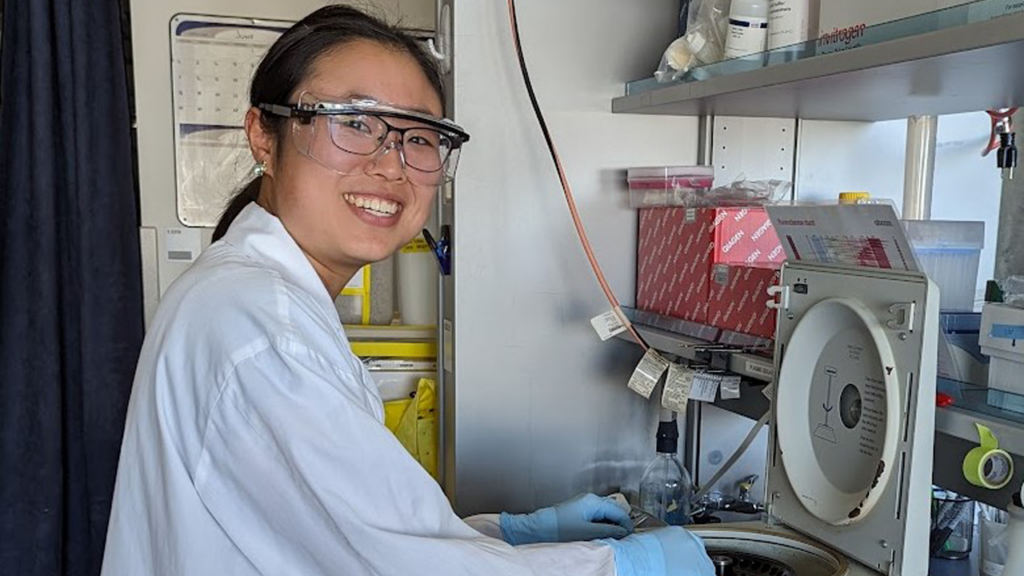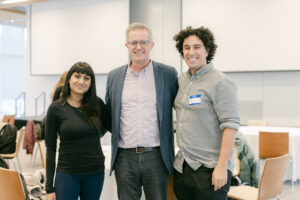
Dr. Sing-Young Chen is a postdoctoral researcher at the JDRF Centre of Excellence at the University of British Columbia, and the second annual recipient of a J. Andrew McKee Fellowship in Type 1 Diabetes (T1D), jointly funded by JDRF Canada and the Stem Cell Network (SCN) based at the JDRF Centre of Excellence at the University of British Columbia (UBC).
JDRF had the pleasure of connecting with Dr. Chen to congratulate her on her new fellowship and discuss her research.
Tell us a little bit more about your background.
I completed my undergraduate degree at the University of Sydney, studying biochemistry and physiology. During my undergraduate studies, I was fortunate to take part in a summer research program at Vanderbilt University, which is when I first became interested in islet biology. Then, I did my PhD at the University of New South Wales, where I studied obesity and obesity-related diseases, with a focus on physiology and drug development.
I’m now at UBC for my postdoctoral training where I am investigating sex differences in islet responses to stress, with the hope of developing novel treatments for type 1 diabetes.
What brought you to Vancouver?
I wanted to work with the researchers at UBC as I had followed their work for a while, and I knew the T1D research there was very strong, and I wanted to be a part of that. I was pleased to find that, coming here, I knew immediately that it was the right move. From the start, I learned so much and I’m learning more every day.
What drew you to type 1 diabetes?
It was really a combination of scientific curiosity and the desire to do something that helps people in the world.
In terms of scientific curiosity, I learned early in my career that I had a particular interest in beta cells and pancreatic islets. If we stop to think about it, it’s actually so incredible that beta-cells can make so much insulin in response to nutrients and other stimuli and they do it so well, in such a controlled way. From a purely scientific viewpoint, they are endlessly fascinating.
But from a human perspective, I know that working on this has real meaning for real people, and like all scientists, I wanted to do something meaningful. I have friends who live with T1D, and I have only glimpsed how challenging it can be. Knowing my work may one day help them and others like them is a very special thing.

What are you planning on investigating at the JDRF Center of Excellence at UBC?
My research focuses on understanding sex differences in beta-cell resilience to stresses associated with T1D.
In type 1 diabetes, the insulin-secreting beta-cells are subject to many stresses – for example, they are attacked by the immune system and there is a high demand for insulin. Pancreatic islets from females are more resilient to these stresses than islets from males and can survive to keep making insulin. My research seeks to understand and leverage these sex differences with a view to develop cell therapies that will thrive in a T1D environment.
How is the JDRF-SCN fellowship going to impact your research?
The Fellowship truly makes the research possible. Science is a team sport that involves a lot of networking and collaboration, and I’ve been really pleasantly surprised at all the resources and expertise that we can draw upon at both the JDRF Centre of Excellence and through SCN. It really helps us not to be limited and therefore be able to go where the science takes us.
Sometimes I’m in a meeting with my supervisors and they’ll just say, “Oh Francis Lynn* can answer that”, or “we can ask Bruce Verchere*”, and it’s so special that all this knowledge is accessible in this way.
*T1D researchers at the JDRF Centre of Excellence
What were some of the more surprising aspects or challenges of your research?
I’ve always been aware that the literature has a sort of bias in different fields. For example, I knew that lots of pre-existing research that only use mice of a single biological sex, but I didn’t realize how extensive the problem was and that historically most research almost never incorporated both sexes in the early stages (before in-human clinical trials). This has also often been the case with diabetes research. We’re missing so much information.
And on another note, I’ve learned that it’s surprising how much you need to get proper sleep! Science is so detail-oriented and it’s so much more important than even I realized to be well-rested.
What are some of your favourite aspects of what you do as a researcher?
I’m so appreciative to have constant opportunities for learning and collaborating – and being able to make a difference in the world. The freedom to be able to explore and realize there are no limits to curiosity and learning.
It’s rare to have a career where you get to learn every day and realize that your curiosity can take you to places you never expected.
Is there anything else you would like to share with the JDRF Community?
I’m so grateful to be here and to have the opportunity to both do important and meaningful work and continue to grow and learn as a researcher and scientist. As researchers, and as human beings, we all play a small part so that together we can accomplish great things. I realize I’ve been incredibly fortunate with the opportunities and education that I’ve had, and I’m committed to contribute as best as I can to our mission.



